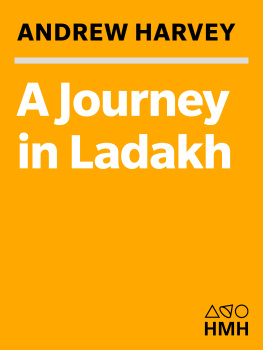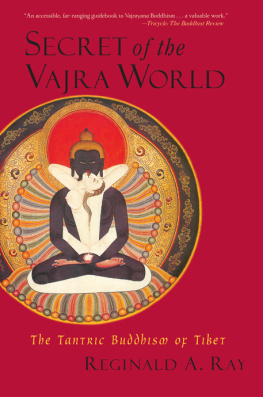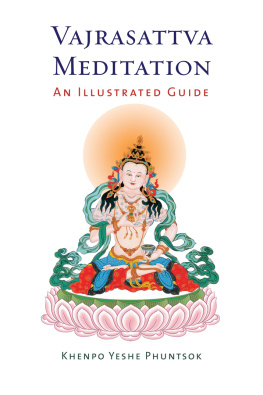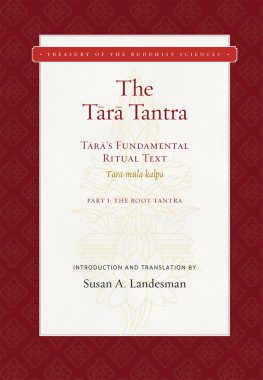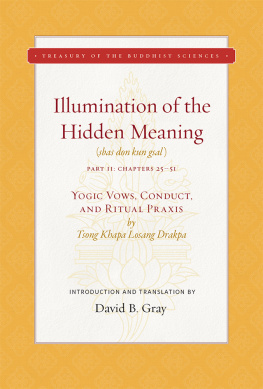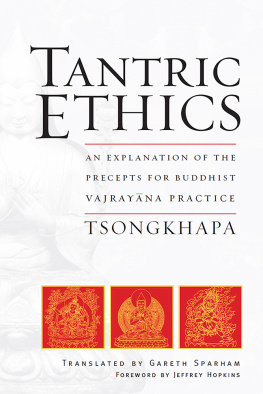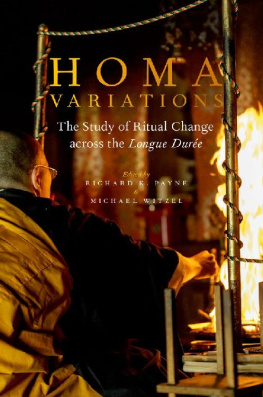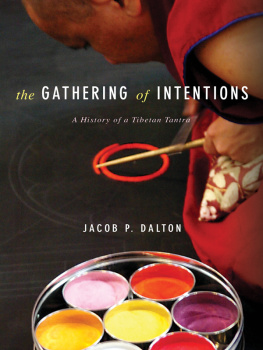IDENTITY, RITUAL AND STATE IN TIBETAN BUDDHISM
Routledge Curzon Studies in Tantric Traditions
Series Editor: Gavin Flood, University of Stirling
| Editorial Advisory Board |
| Dr. Sanjukta Gupta | University of Leiden |
| Dr. Rob Mayer | University of Canterbury |
| Prof. G. Oberhammer | University of Vienna |
| Prof. A. Padoux | CNRS, Paris |
| Dr. R. Payne | Institute of Buddhist Studies, Berkeley |
| Dr. G. Samuel | University of Newcastle, Australia |
| Dr. J. H. Sanford | University of North Carolina |
| Prof. Frits Staal | University of California, Berkeley |
| Prof. Musashi Tachikawa | National Museum of Ethnology, Osaka |
The Routledge Curzon Studies in Tantric Traditions is a major new monograph series which has been established to publish scholarship on south, east, and southeast Asian tantric traditions. The series aims to promote the serious study of both Hindu and Buddhist tantric traditions through the publication of anthropological and textual studies and will not be limited to any one method. Indeed, the series would hope to promote the view that anthropological studies can be informed by texts and textual studies informed by anthropology. The series will therefore publish contemporary ethnographies from different geographical regions, philological studies, philosophical studies, and historical studies of different periods which contribute to the academic endeavour to understand the role of tantric texts and their meaning in particular cultural contexts. In this way the series will hope to establish what the continuities and divergencies are between Buddhist and Hindu tantric traditions and between different regions. The series will be a major contribution to the fields of Indology, Sinology, History of Religions, and Anthropology.
Enquiries and proposals may be addressed to Professor Gavin Flood, Religious Studies Dept., University of Stirling, Stirling, FK9 4LA, Scotland
IDENTITY RITUAL AND STATE
IN TIBETAN BUDDHISM
The Foundations of Authority
in Gelukpa Monasticism
Martin A. Mills
First Published in 2003
by Routledge Curzon
2 Park Square, Milton Park, Abingdon, Oxon, 0X14 4RN
Simultaneously published in the USA and Canada
by Routledge Curzon
270 Madison Ave, New York NY 10016
Routledge Curzon is an imprint of the Taylor & Francis Group
Transferred to Digital Printing 2005
2003 Martin A. Mills
Typeset in Sabon by LaserScript Ltd, Mitcham, Surrey
All rights reserved. No part of this book may be reprinted or reproduced or utilised in any form or by any electronic, mechanical, or other means, now known or hereafter invented, including photocopying and recording, or in any information storage or retrieval system, without permission in writing from the publishers.
British Library Cataloguing in Publication Data
A catalogue record of this book is available from the British Library
Library of Congress Cataloging in Publication Data
A catalog record for this book has been requested
ISBN 0-7007-1470-7
ISBN 978-1-1368-5474-3 (ePub)
Printed and bound by Antony Rowe Ltd, Eastbourne
CONTENTS
(Between pages 170 and 171)
This work simply would not have existed without the generosity and patience of a vast number of people, who tirelessly helped me through the eight years of its production. First and foremost amongst these are the people of the Trans-Sengge-La area of Southern Ladakh, and the monks of Kumbum monastery in particular, whose generosity and patience still amaze and shame me. Thanks in particular go to Geshe Ngawang Changchub, the zurpa Norbu, Norbu and Sonam Rinchen, gyelong Sonam Wangdus, Tsewang Norbu, Tsering Samdrup, Tsewang Jorgyas, Ngawang Jigmet, Eshy Namgyal, Ngawang Tsering, Tsewang Dorje, Tsewang Samdrup and of course Lobsang Tsedun, all of whom patiently put up with my endless clumsy questions and atrocious manners. They did their best to explain a vast iceberg of understanding and knowledge, of which I struggled to grasp the merest tip. In a world beyond the settled conveniences of the cash economy, moreover, I could not have survived to achieve anything without the protection and generosity of the Shalatospa household and their relatives, at a cost that they persistently refused to mention. Thanks also go to the inimitable Thubstop Dorje, Dechen Gyaltsen, Sonam Dorje, Sonam Wangdus and Karma Wangdus, and the Bandoma and Sharchyogspa households. Of all these, however, I owe the greatest and most inestimable debt to my guide, teacher and friend, Karma Namgyal, who first invited me to Lingshed, and without whom all of this would be nothing.
In Leh, the regional capital of Ladakh, I must extend my respectful thanks to Gyelong Thubstan Paldan and Tsering Norbu of the Jammu and Kashmir Cultural Academy, to Tashi Angchuk (and family) and everyone at the Student Educational and Cultural Movement of Ladakh, NOMAD, the Leh Nutrition Project, the Katar household and T.T.Namgyal for his good-humoured introduction to Ladakhi etiquette. Help and a sense of perspective during fieldwork were provided by Tashi and Chodak, Mick, Rebecca, Kim, and of course Jill and Henk.
In Britain, thanks go to Jonathan Spencer and Nick Tapp for seeing me through those dangerous first steps, and never giving up on my writing style; and to Paul Dundas, Cathy Cantwell, Robert Mayer, Maria Phylactou and Thubstan Choegyal for external support and guidance. To Matthew Kapstein, Ralph Grillo, Jock Stirrat, Filippo Osella, John Mitchell and Jill Sudbury go my thanks for critical comments and suggestions on early drafts and conceptual formulations. For research support (and for always being at the end of the phone), my thanks must also go to the staff of the irreplacable Tibet Information Network in London. Fieldwork and writing time for the whole project were supported by generous grants from the Spalding Trust, the Royal Anthropological Institute, and the Frederick Williamson Memorial Fund. Last but definitely not least my thanks go to my wife Nick for the herculean care, precision and patience she demonstrated in the proof-reading of the manuscript, the checking of bibliographies, and above all, putting up with my filing system. Whilst this work could never have happened without all of these people, any and all mistakes and shortcomings in this book are solely the responsibility of the author.
Understanding a book, as with anything else, is often as much a question of appreciating its origins as of comprehending its contents; this work is no different in this regard. Most orthodox Tibetan philosophers and theologians identify two kinds of origin to phenomena: deep causes (rgyu) and immediate conditions (rken). The most obvious immediate conditions for this work are the initial eighteen months of fieldwork carried out in the Himalayan, and predominantly Tibetan Buddhist, kingdom of Ladakh (in the Indian State of Jammu and Kashmir) between 1993 and 1995. During this time I had the great good fortune to spend six months living in and researching the ritual life of the Gelukpa order monastery of Kumbum (One Hundred Thousand Images) in Lingshed village, an isolated agricultural community within the Zangskar mountain range of Southern Ladakh. Whilst of immense importance to the inhabitants of Lingshed and its surrounding villages, Kumbum is not one of Tibetan Buddhisms great monasteries, and certainly cannot compare in grandeur to the vast monastic universities that the Gelukpa order maintained in old Tibet: it houses none of the orders many incarnate lamas, no noted schools of Buddhist dialectics, no cadre of famed tantric yogins. But it does its job seeing to the ritual needs of local households, educating its coterie of sixty-odd monks to a level which allows them either to perform rites with competence, or enter the higher echelons of the newly-reformed Gelukpa educational system (now working in exile in India and Nepal) with confidence. Unlike its more impressive cousins, moreover, Kumbum has an unbroken tradition of Gelukpa practice, maintained


